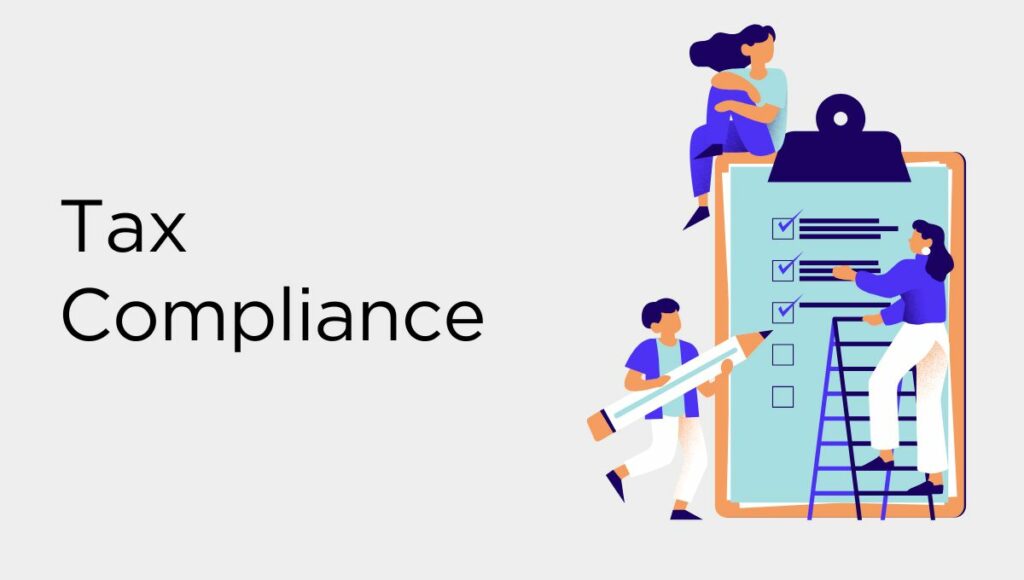Generally, tax compliance has been part and parcel of business activities. Still, without a doubt, the speed with which technology is spreading and regulation is changing is presently bringing about changes in tax compliance at a rate that has never been more unpredictable. As more digital tax solutions emerge, pushing forward with AI dominance in tax compliance, professionals in this field must stay up to date on these trends if they are going to remain competitive and compliant.
Being informed about these tax compliance trends 2024 is essential for everyone involved with managing tax obligations.
Digital Tax Solutions Emerge
The most fundamental shift in tax compliance is digital tax solutions. Governments are inclined toward simplifying and streamlining the tax process and continue to displace or reduce manual systems with automated digital platforms. These solutions guarantee greater transparency, faster processing, and more accurate reporting, so tax professionals can spend fewer minutes administering and the majority of their time focused on true complexity tax strategy and planning.
Digital tax solutions are designed to handle multiple tasks, ranging from filing returns to tax liability calculation, focusing on abiding by changing rules and regulations in real time. Approaching 2024, businesses using these tools will not only be efficiency-oriented but also reduce the scope of financial accounting errors that may sometimes occur through manual data input.
How AI in Tax Compliance is Revolutionizing
Artificial Intelligence (AI) is increasingly playing a very important role in tax compliance. By processing tremendous volumes of data and finding patterns, AI in tax compliance enables tax professionals to identify potential problems even before they become problems. From flagging discrepancies in financial statements to automating transaction classification, AI is changing how we approach tax.
Tax Technology Innovations: A New Era in Compliance
Tax innovations extend beyond AI, with blockchain, cloud computing, and data analytics highly transformational for tax compliance. Blockchain technology offers the highest transparency level in the world. It can provide a secure, unique ledger for tracking transactions in such a manner that it would be virtually impossible to manipulate it undetected.
Compliance in a Globalized Economy
Tax compliance in the current globalized economy does not confine itself to a particular country’s borders. As part of business internationalization, businesses must follow the tax laws of all countries where they operate. Trends for tax compliance 2024 reveal that businesses will require more integrated digital tax solutions that can deal with multiple jurisdictions and the various tax laws applicable in each jurisdiction.
Why Professional Development Matters: The CPA Course
Professionals must continue with the dynamism in taxation skills updating. The best way to continue competing effectively with tax compliance requires professional qualification, and the CPA course is a globally known qualification that provides the advanced skill required in knowledge for practitioners when it comes to complex tax issues.
The Imarticus Learning CPA course provides in-depth training on accounting, auditing, and tax compliance. It’s the perfect choice for those aspiring to enhance their careers with live simulations, practical training, and placement assistance. Thus, the candidate is ready to meet the demands of modern tax compliance in the CPA course.
Key Takeaways by Tax Professionals
Change is sweeping the face of tax compliance through technological innovation and globalization. To keep pace with these developments, the tax professional should:
- Be Change-Minded in Adopting Digital Tax Solutions: Implement digital tax solutions to streamline business processes, minimize errors, and increase efficiency.
- Use AI in Tax Compliance: Artificial intelligence is used ce for data analysis, discrepancies detection, and tax liability prediction.
- Keep Up to Date with Tax Technology Innovations: Implement its best practices in blockchain and cloud computing to enhance tax compliance.
- Upskilling with a CPA Course: Competition is always ahead, but a CPA course can give one an edge by developing expertise in accounting and tax compliance.
- Preparation for Global Tax Compliance: Stay current with international tax laws and have solutions that can handle multi-jurisdictional compliance.
The future of tax compliance should not come as a surprise to tax professionals who are paying attention to trends and investing in professional development.
Imarticus Learning’s CPA Program: Shape Your Tax Compliance Career
Imarticus Learning gives students complete CPA courses to get the education, skills, and on-the-job training necessary to succeed in taxation. It includes:
- AICPA Approvals: Well-researched study materials powered by Surgent.
- Live Simulations: Real-life exposure with practical application.
- Placement: Link to big-tier firms, which also include Big 4.
- Money-Back Assurance: 50% Refund for not passing the exams.
This CPA course will give you all the tools you need to gain and advance your career in tax compliance and become an expert in this area.
Conclusion
The future of tax compliance is very interesting and impressive, considering how digital tax solutions, AI, and all those other tremendous advancements are taking over. With those trends in mind, continuous investment in learning, and the power of innovation, professionals can ensure success in this rapidly developing field. Consider a CPA course to equip yourself with skills that will thrive in the future of tax compliance.
Frequently Asked Questions
Why should I take a CPA course for tax compliance?
A CPA course provides professionals with all the skills needed to understand complicated tax systems. Such qualification will enable one to understand worldwide tax-governing rules and provide career opportunities in accountancy and taxation.
What role does blockchain play in tax compliance?
Blockchain can function as a secure and unalterable ledger of transactions, thus making tax records more likely to become more accurate, reliable, and tamper-proof. It can particularly improve tax compliance for multinational enterprises.
How would I stay updated on tax compliance trends?
To stay ahead of tax compliance trends 2024 and new technological inventions, update yourself with the latest industry publications, attend webinars and training courses, and invest in professional development programs such as the CPA course.

